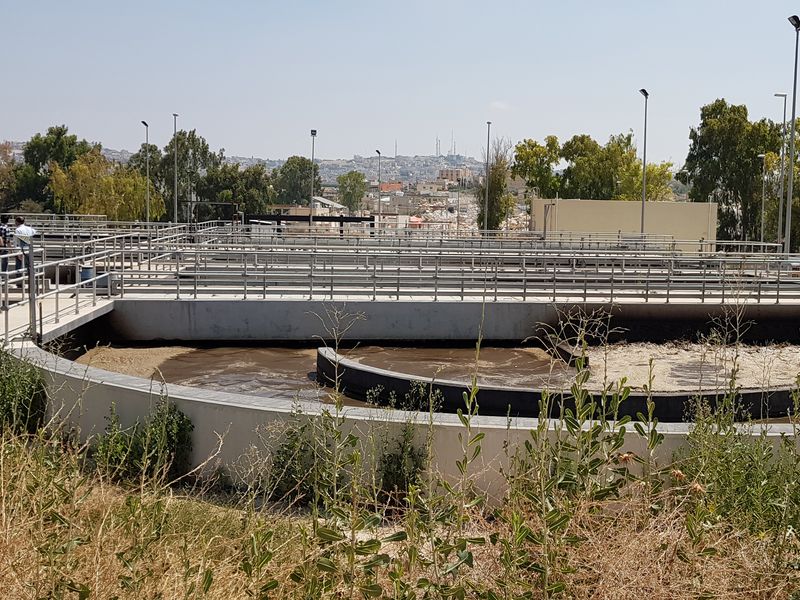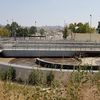Irbid, Zarqa:Climate Change Mitigation Measures in the Wastewater Sector in Jordan
Disciplines
-
Environment & Sustainability
-
Sanitation
Companies
Dorsch International Consultants
Client
Water Authority of Jordan (WAJ)
Duration
From 2018 to 2023Project Activities
Part 1: As Samra Mono Sludge Landfill - 5 waste cells with a total capacity of 2.8 million m³ net.
Construction of cell 1 with a capacity of around 500,000 m³ and an estimated lifetime of 5 years. The area to be sealed is around 60,000m².
Leachate and storm water management systems and a landfill gas management system consisting of vertical gas extraction wells with gas flare and electric generator as well as infrastructure such as buildings, roads, supply and monitoring systems to ensure appropriate operation of the landfill.
Part 2: Central Irbid and Wadi Arab WWTPs
New sewer network, house connections, pump station and force main. Rehabilitation of screens, grit chamber, aeration tanks and clarifiers, etc. at the existing WWTP and the construction of new digesters with associated equipment for sludge thickening and biogas utilization.
Part 3: Final Treatment Station
Construction of a treatment station comprising filtration and disinfection for the treated waste water before irrigation
Contact
Dorsch International Consultants GmbH
München (Headquarters)
80687 München
Germany
Phone: +49 89 5797-0
Fax: +49 89 5797-800
E-Mail: info@dorsch.de
Description
Jordan, being one of the most water scarce countries in the world, is increasingly facing the impacts of climate change, thus this project aims to contribute towards efficient and sustainable water resource management and consequently, to the Jordanian climate protection efforts.
Furthermore, the project intends to contribute to the environmentally and energy appropriate treatment and disposal of sewage sludge, and the use of reclaimed water for irrigation purposesThe project is being carried out in three parts:
Part I: As Samra Mono Sludge Landfill;
Part II: Wadi Al Arab and Irbid Central WWTPs which includes the upgrading of wastewater and sewage sludge collection systems ensuring access to adequate and equitable sanitation as well as integrating renewable energy and energy efficient processes in both Wadi Al Arab and Irbid Central WWTP, thus ensuring access to affordable, reliable, sustainable energy. Part III: Final Treatment Plant which improves water quality for use in irrigation consequently contributing to food security and sustainable agriculture.
The expected outcome of these investment measures include:
- A reduction of at least 65% of sewage sludge from WWTPs
- A reduction in greenhouse gas emissions through the integration of renewable energy and energy efficiency processes
- Up to 95% of the annual sewage sludge will be disposed in an environmentally sound manner
- Compliance with the Jordanian Standards for irrigation, of the effluent quality of the combined treated wastewater of the 3 WWTPs

